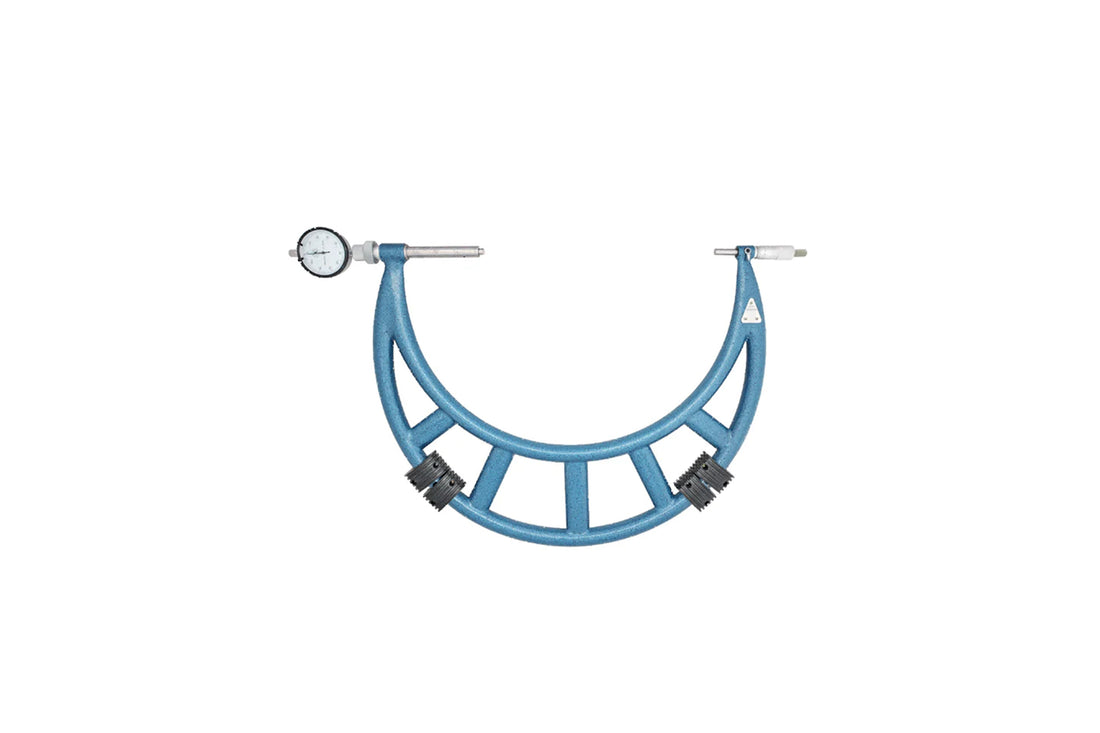Precision measurement is a cornerstone of engineering and manufacturing, ensuring quality, consistency, and compliance across a range of applications. However, with a variety of tools available, choosing the right measurement tool can be challenging. This guide offers practical advice for engineers and technicians, exploring factors to consider when selecting measurement tools and providing insights into Meapert’s offerings that cater to diverse professional needs.

Key Considerations When Selecting Measurement Tools
Selecting the ideal measurement tool depends on several factors, each playing a critical role in ensuring accuracy and ease of use. Here are key aspects to consider:
Accuracy and Precision: Different projects require different levels of accuracy. For example, aerospace or medical device manufacturing demands extremely tight tolerances, which means tools with high precision are essential. Ensure your chosen tool meets the necessary accuracy requirements to maintain quality and reduce errors.
Durability: Measurement tools are often used in demanding environments, where durability is paramount. Tools made from high-quality materials withstand daily wear, exposure to harsh conditions, and repeated calibration, ensuring they remain accurate over time.
Digital vs. Analog: Both digital and analog measurement tools have their advantages:
- Digital Tools: Digital micrometers and calipers offer quick readings, are easy to read, and often include additional features like data recording. They are ideal for professionals who need to measure multiple components quickly and precisely.
- Analog Tools: Analog tools may lack digital conveniences but are often simpler, more robust, and immune to electronic failures. They are ideal for basic measurements and situations where simplicity and reliability are key.
Understanding these considerations helps engineers and technicians make informed choices, matching the tool’s capabilities to their project’s demands.

Comparing Micrometers, Calipers, and Specialized Tools
Each type of measurement tool serves distinct purposes, so choosing between them depends on the specific task at hand.
Micrometers: Known for their precision, micrometers are ideal for measuring smaller dimensions, such as the thickness or diameter of components. They are frequently used in high-precision fields like aerospace, automotive, and scientific research. Meapert’s range includes digital and analog micrometers, providing options for both high-accuracy requirements and rugged field use.
Calipers: Calipers are more versatile, allowing measurements of both internal and external dimensions. Engineers often use calipers for quick checks, and they are invaluable for multi-dimensional measurements. Meapert offers calipers with varying measurement ranges, including digital and dial calipers, making them suitable for everything from general engineering to fine machining tasks.
Specialized Tools: In addition to standard tools, some projects may require specialized measurement instruments, such as depth gauges or micrometer heads. These are used in niche applications where conventional tools may not suffice, like measuring intricate parts or working in confined spaces. Meapert’s specialized tools include options tailored for precision measurements in complex environments, ensuring that every component meets exact specifications.
By understanding the strengths of each tool type, engineers can choose the one best suited to their needs, ensuring accurate results across various applications.

Meapert’s Product Offerings for Different Professional Needs
Meapert provides a diverse range of measurement tools that cater to the specific requirements of professionals across industries. Here’s a look at some of Meapert’s offerings and how they support different measurement tasks:
High-Precision Micrometers: Meapert’s micrometers are designed to deliver accuracy down to microns, making them essential for applications where exact measurements are critical. These tools are crafted with ergonomic designs for comfort during prolonged use and come in both digital and analog versions to match user preference.
Versatile Calipers: Meapert’s calipers are equipped with features that make them suitable for a wide array of measurements. The digital calipers offer easy-to-read displays, while the dial calipers provide analog accuracy for users who prefer a traditional approach. These tools are designed for precision and ease of handling, helping engineers perform accurate checks quickly.
Specialized Measurement Tools: For engineers and technicians working with complex or custom projects, Meapert offers specialized tools such as depth gauges and custom micrometer heads. These tools are engineered to handle unique measurement tasks, allowing professionals to maintain precision even in challenging scenarios.
Meapert’s product range is a testament to the brand’s commitment to meeting diverse professional needs, whether for basic checks or intricate measurements.

Conclusion
Choosing the right measurement tool is crucial for achieving accuracy, reliability, and efficiency in engineering and manufacturing. By considering factors such as accuracy, durability, and digital vs. analog options, professionals can select tools that best suit their specific applications. Meapert’s extensive range of micrometers, calipers, and specialized tools ensures that engineers and technicians have access to the precision tools they need.
Whether you’re conducting quick checks or performing intricate measurements, Meapert has the perfect tool to support your work. Reach out to learn more about how Meapert’s measurement solutions can elevate your precision and reliability in manufacturing.


